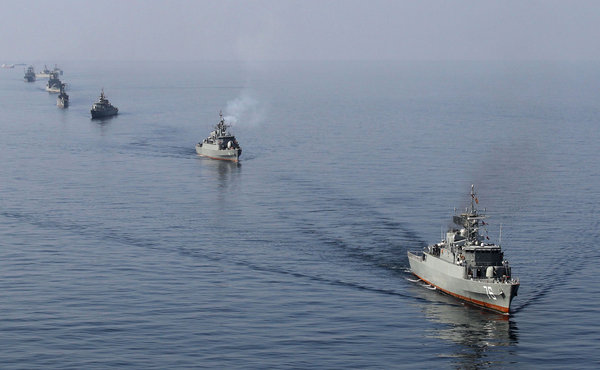Gunmen have kidnapped a British doctor working with the International Committee of the Red Cross in the south-western Pakistan city of Quetta, the organisation said.
Armed gunmen seized Khalil Rasjed Dale at about noon local time on Thursday. He was driving in the centre of Quetta from his office to his home, ICRC spokesman Christian Cardon said.
“He was in a clearly marked vehicle with an ICRC emblem. Several armed gunmen hijacked him,” he said, adding that Dale’s family had been informed. He added: “We call for Khalil’s rapid and unconditional release.”
Dale was based in Quetta, the capital of Pakistan’s troubled south-western Baluchistan province. He was working as the ICRC’s health programme manager. It is unclear how long he had been based in the region, or whether his family were in Pakistan or in the UK.
The Foreign Office said it was urgently investigating the incident. No one immediately claimed responsibility, but criminal gangs have often targeted foreign aid workers in the hope of securing large ransoms for their release.
“We are checking all routes out of the districts, but we have not been able to trace that vehicle,” Nazeer Kurd, a senior city police official, said. “We are trying to ensure that the vehicle does not leave Quetta.” Baluchistan is Pakistan’s biggest but poorest province, where Baluch separatist militants are fighting a protracted insurgency for more autonomy and control over the area’s natural resources.
Pro-Taliban militants are also active in the province, which shares borders with Afghanistan and Iran.
Four health workers, including two doctors, were kidnapped by militants last week from the Pishin area of Baluchistan, near Quetta. They were freed after a shootout between police and their kidnappersFrom The Guardian, Gunmen have kidnapped a British doctor working with the International Committee of the Red Cross in the south-western Pakistan city of Quetta, the organisation said.
Armed gunmen seized Khalil Rasjed Dale at about noon local time on Thursday. He was driving in the centre of Quetta from his office to his home, ICRC spokesman Christian Cardon said.
“He was in a clearly marked vehicle with an ICRC emblem. Several armed gunmen hijacked him,” he said, adding that Dale’s family had been informed. He added: “We call for Khalil’s rapid and unconditional release.”
Dale was based in Quetta, the capital of Pakistan’s troubled south-western Baluchistan province. He was working as the ICRC’s health programme manager. It is unclear how long he had been based in the region, or whether his family were in Pakistan or in the UK.
The Foreign Office said it was urgently investigating the incident. No one immediately claimed responsibility, but criminal gangs have often targeted foreign aid workers in the hope of securing large ransoms for their release.
“We are checking all routes out of the districts, but we have not been able to trace that vehicle,” Nazeer Kurd, a senior city police official, said. “We are trying to ensure that the vehicle does not leave Quetta.” Baluchistan is Pakistan’s biggest but poorest province, where Baluch separatist militants are fighting a protracted insurgency for more autonomy and control over the area’s natural resources.
Pro-Taliban militants are also active in the province, which shares borders with Afghanistan and Iran.
Four health workers, including two doctors, were kidnapped by militants last week from the Pishin area of Baluchistan, near Quetta. They were freed after a shootout between police and their kidnappers
Gunmen have kidnapped a British doctor working with the International Committee of the Red Cross in the south-western Pakistan city of Quetta, the organisation said. Armed gunmen seized Khalil Rasjed Dale at about noon local time on Thursday. He was driving in the centre of Quetta from his office to his home, ICRC spokesman Christian Cardon said. “He was in a clearly marked vehicle with an ICRC emblem. Several armed gunmen hijacked him,” he said, adding that Dale’s family had been informed. He added: “We call for Khalil’s rapid and unconditional release.” Dale was based in Quetta, the capital of Pakistan’s troubled south-western Baluchistan province. He was working as the ICRC’s health programme manager. It is unclear how long he had been based in the region, or whether his family were in Pakistan or in the UK. The Foreign Office said it was urgently investigating the incident. No one immediately claimed responsibility, but criminal gangs have often targeted foreign aid workers in the hope of securing large ransoms for their release. “We are checking all routes out of the districts, but we have not been able to trace that vehicle,” Nazeer Kurd, a senior city police official, said. “We are trying to ensure that the vehicle does not leave Quetta.” Baluchistan is Pakistan’s biggest but poorest province, where Baluch separatist militants are fighting a protracted insurgency for more autonomy and control over the area’s natural resources. Pro-Taliban militants are also active in the province, which shares borders with Afghanistan and Iran. Four health workers, including two doctors, were kidnapped by militants last week from the Pishin area of Baluchistan, near Quetta. They were freed after a shootout between police and their kidnappers





